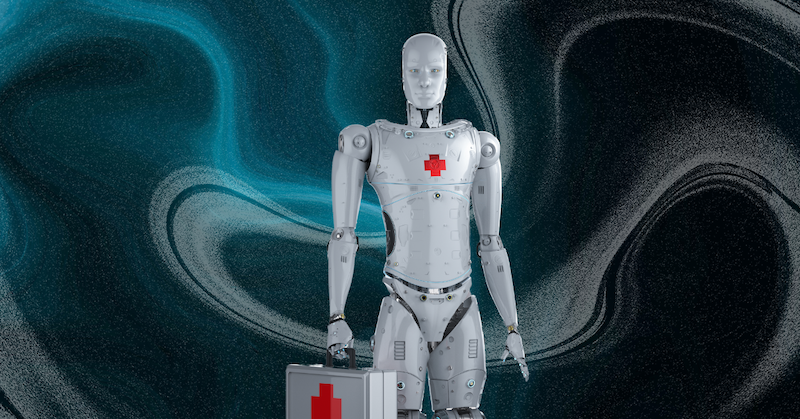When the starship Voyager’s chief medical officer is killed, the crew is stuck with The Doctor, an AI doc that presents as a hologram. That makes sense for “Star Trek,” but IRL, the idea of being treated by AI is daunting.

And yet, that’s what Nvidia proposed earlier this week when it announced a partnership with Hippocratic AI, a startup offering AI nurses.
What do these “nurses” do?
They’re designed to provide nondiagnostic care, such as preop or post-discharge instructions, via video chat.
A promo video shows an AI nurse offering a “patient” advice about how to take her prescriptions and optimize recovery following an appendectomy.
Why would anyone want this?
Hippocratic claims its AI nurses, priced at $9/hour, are far cheaper than human nurses, who can charge ~$90/hour, and could help alleviate a nationwide nursing shortage.
But:
- The US Bureau of Labor Statistics pegged the average RN’s salary in 2022 at $38.74/hour, not $90, per Popular Science.
- PopSci also pointed out that it takes a lot of power to run an H100 GPU — the Nvidia chip Hippocratic uses, which cost $30k-$40k each.
- Meanwhile, nurses’ union National Nurses United says that the shortage isn’t about pay, but understaffing, which has led to nurses leaving the field and widespread strikes.
AI is already at play…
… in the medical field, where diagnostic tools have offered a mixed bag of results.
But there are sure to be questions surrounding whether AI can or should provide any kind of patient-facing care.
- Health care experts told Stateline that, while hospitals already use algorithms and machine-learning tools, regulations must ensure that humans are calling the final shots.
- Research professor Maura Grossman told MedPage Today that AI can act as a “second pair of eyes” for a human nurse, provide recommendations, and do admin work, but that the algorithms need to be evaluated carefully for misinformation and bias.
BTW: A Pew Research Center survey found that 60% of Americans would be uncomfortable with medical professionals using AI, while 79% said they don’t want AI in their mental health care.
